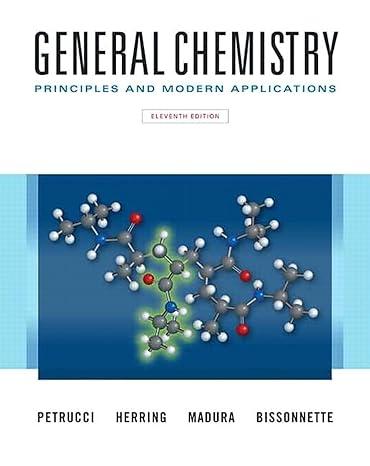All solids contain defects or imperfections of structure or composition. Defects are important because they influence properties,
Question:
All solids contain defects or imperfections of structure or composition. Defects are important because they influence properties, such as mechanical strength. Two common types of defects are a missing ion in an otherwise perfect lattice, and the slipping of an ion from its normal site to a hole in the lattice. The holes discussed in this chapter are often called interstitial sites, since the holes are in fact interstices in the array of spheres. The two types of defects described here are called point defects because they occur within specific sites. In the 1930s, two solidstate physicists, W. Schottky and J. Fraenkel, studied the two types of point defects: A Schottky defect corresponds to a missing ion in a lattice, while a Fraenkel defect corresponds to an ion that is displaced into an interstitial site.
(a) An example of a Schottky defect is the absence of a Na+ ion in the NaCl structure. The absence of a Na+ ion means that a Cl- ion must also be absent to preserve electrical neutrality. If one NaCl unit is missing per unit cell, does the overall stoichiometry change, and what is the change in density?
(b) An example of a Fraenkel defect is the movement of a Ag+ ion to a tetrahedral interstitial site from its normal octahedral site in AgCl, which has a structure like NaCl. Does the overall stoichiometry of the compound change, and do you expect the density to change?
(c) Titanium monoxide (TiO) has a sodium chloridelike structure. X-ray diffraction data show that the edge length of the unit cell is 418 pm. The density of the crystal is 4.92 g/cm3. Do the data indicate the presence of vacancies? If so, what type of vacancies?
Step by Step Answer:

General Chemistry Principles And Modern Applications
ISBN: 9780132931281
11th Edition
Authors: Ralph Petrucci, Jeffry Madura, F. Herring, Carey Bissonnette





